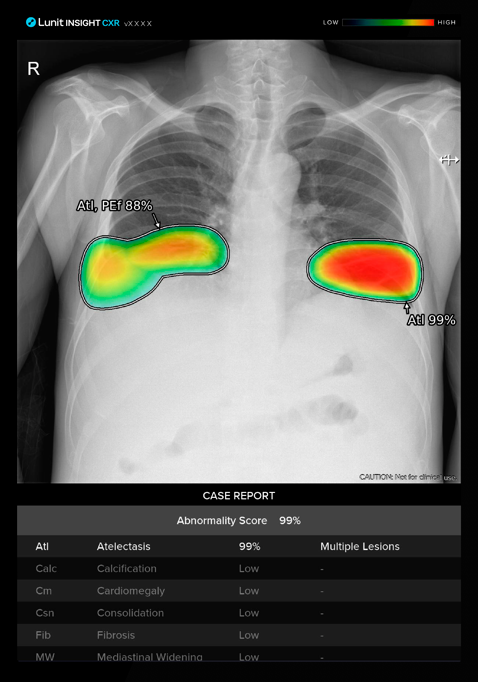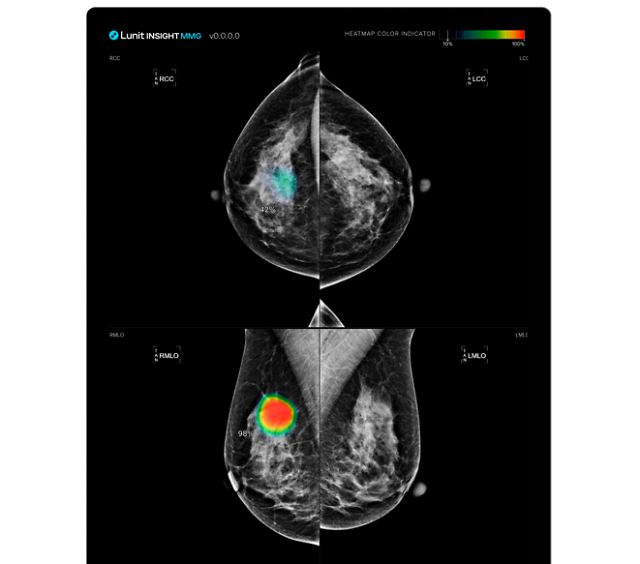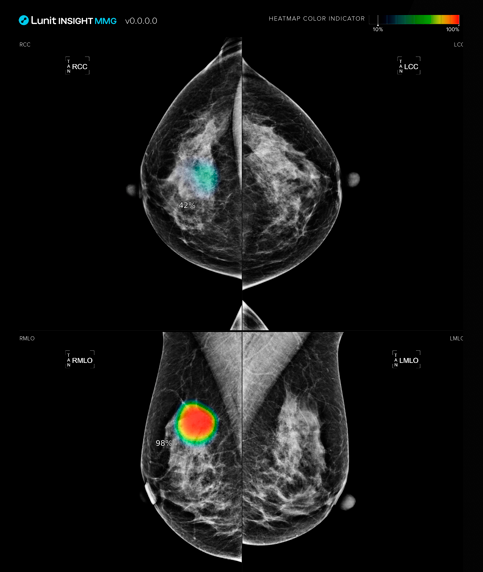
SEOUL -- Samsung Electronics will adopt "Lunit INSIGHT CXR," an artificial intelligence-based chest X-ray analysis solution developed by South Korea's medical artificial intelligence company Lunit. After integrating Lunit INSIGHT CXR into X-ray devices, the tech giant will export them to medical facilities in North America and Europe.
The AI solution can compare and analyze X-rays and medical images to distinguish between patients with chest diseases and those who are healthy. When an anomaly is detected, Lunit INSIGHT CXR informs human supervisors whether patients should take additional tests. The analysis software detects lung cancer and unusual lesions with an accuracy rate of more than 90 percent.
Lunit said the company signed an agreement to provide Lunit INSIGHT CXR to Samsung. Along with the North American and European markets, the two sides will cooperate to export Samsung's premium X-ray devices that incorporate Lunit's AI solution to other regions such as the Middle East, South America, and Southeast Asia.
The medical AI firm will also supply "Lunit Insight CXR Triage," an AI solution that finds abnormalities in advance through frontal chest X-ray images. The software, mainly used to detect pneumothorax and pleural effusion, was approved by the U.S. Food and Drug Administration in November 2021.
"The synergy between Lunit and Samsung Electronics will enable faster, more accurate chest screenings, leading to timely interventions and improved patient outcomes," Lunit CEO Brandon Suh said in a statement on January 16. "We're excited about the potential this partnership holds for advancing chest X-ray practices, particularly in ICUs (intensive care units) and ERs (emergency rooms)."
According to data released by market research firm Global Industry Analysts, the global diagnostic imaging market is projected to reach $33.2 billion by 2026. In July 2022, the medical solution developer agreed to deploy Lunit INSIGHT CXR to Bumrungrad International Hospital, a major hospital in Bangkok. The solution is also being used at Albert Einstein Israelite Hospital, one of the largest medical facilities in Brazil.
Copyright ⓒ Aju Press All rights reserved.





View more comments